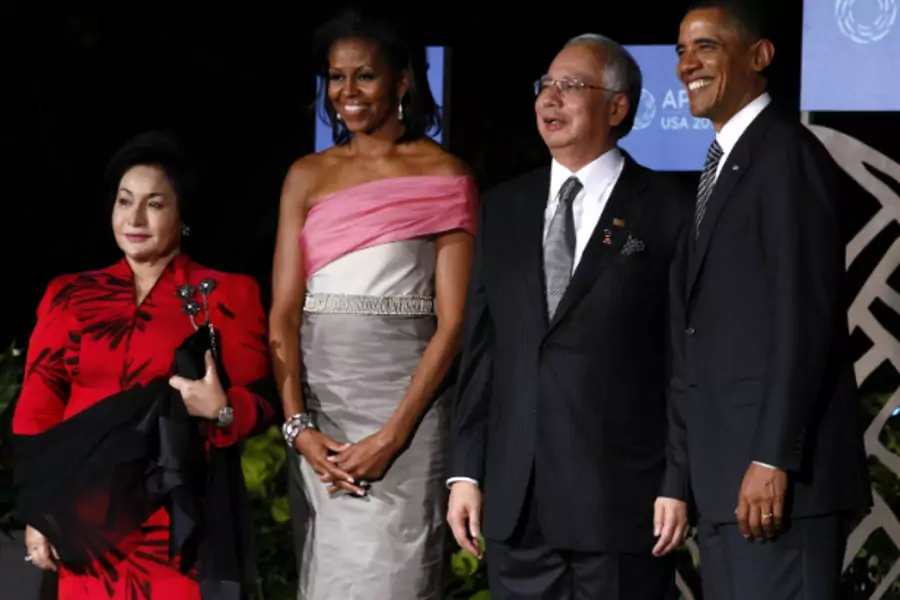Obama’s October Trip to Asia

More on:
The White House last week confirmed that President Obama will be traveling to Southeast Asia between October 6 and 12. He will visit Indonesia, Brunei, the Philippines, and Malaysia.
In all of these countries, Obama will be celebrating growing partnerships, including a defense partnership with treaty ally the Philippines that is at the strongest its been since the U.S. left its bases in the Philippines more than two decades ago; with the Philippines driven by fear of China’s growing regional presence, U.S. forces now are returning to the country with a much more significant presence than at any time since the Cold War. In Malaysia and Brunei and Indonesia, strategic cooperation, as well as growing bilateral trade, also will be highlighted by the White House; the United States recently agreed to sell Apache attack helicopters to Indonesia, one of the first big arms deals since restrictions on selling lethal weapons to the country were lifted.
But in all of these countries, Obama also should be aware that he is walking into places where, though democracy is taking firm root, it remains bumpy. The White House should be careful to help promote continued democratization in these states—and indeed in all of Southeast Asia—rather than just celebrating its strategic ties and its bilateral relationships with the current leaders of these three nations. In Malaysia, such a democracy-first strategy would mean not only highlighting how Prime Minister Najib Tun Razak has helped rebuild U.S-Malaysia strategic ties from their ebb in the latter days of the Mahathir Mohamad era but also meeting with opposition leaders like Anwar Ibrahim and rights activists like leaders of the Bersih movement for clean and fair elections in Malaysia. After all, in May Najib’s coalition actually lost the popular vote to Anwar’s opposition Parti Keadilan Rakyat (PKR) coalition, and if not for gerrymandering and alleged voter fraud, Anwar’s coalition probably would be running Parliament now.
In the Philippines, this strategy would mean not only working closely with President Benigno Aquino III, who has proven to be a more proactive leader than many expected, helping putting the Philippines on a more stable economic path, but also should spend time with the leaders of the movement to combat political graft and pork barrel spending (including staff from the Office of the Ombudsman), which has become an electrifying issue among middle class Filipinos transfixed by the case of several veteran lawmakers who allegedly worked together to steal millions from anti-poverty projects. Over 100,000 people have massed in the streets of Manila in recent weeks to protest the culture of graft and politicians stealing from the state treasury. Although Aquino has promised to crack down on the corruption that has plagued the Philippines and historically undermined its growth, his actual reforms have been relatively weak.
Finally, in Indonesia the president should not only praise Indonesian President Susilo Bambang Yudhoyono for his steady leadership over two terms, ending the chaos of the Habibe, Wahid, and Megawati years, but also should meet with younger leaders of Indonesian civil society from parts of the country other than Jakarta. Compared to a decade ago, Indonesian politics have become much more national, with Jakarta-based elites no longer dominating every issue, a change highlighted by the emergence of former Solo (and now Jakarta) governor Joko Widodo, or Jokowi, as a legitimate presidential candidate for the next election.
More on:
 Online Store
Online Store